第70章 THE MERRY WIDOWS(13)
Questioned with regard to her intimacy with Meilhan, she declared that she knew nothing of his morals.She had intervened in the Lescure affair at the request of Mme Lescure, who came to deny the accusation made by Lescure.This woman had never acted as intermediary between herself and Meilhan.Meilhan had not been her confidant.She looked after her late husband's affairs herself.She had handed over the Castera note to Meilhan against his loan of 2000 francs, but she had never given him money as a present.Nor had she ever spoken to Meilhan of an annuity.But Meilhan, it was objected, had been showing a deed signedEuphemie Lacoste.'' The accused quickly replied that she never signed herself Euphemie,'' but as Veuve Lacoste.'' Upon this the President called for several letters written by the accused.It was found that they were all signed Veuve Lacoste.''
The evidence of the Fourcades regarding her conduct in their house at Tarbes was biased, she said.She had refused to take up some peoplerecommended by her landlady.The young man who had visited her never remained longer than after ten o'clock or half-past, and she saw nothing singular in that.
The examination-in-chief of Mme Lacoste ended with her firm declaration that she knew nothing of the poisoning of her husband, and that she had spoken the truth through all her interrogations.Some supplementary questions were answered by her to the effect that she knew, during her marriage, that her husband had at one time suffered from venereal disease; and that latterly there had been recrudescences of the affection, together with the hernia already mentioned, for which her husband took numerous medicaments.
Throughout this long examination Mme Lacoste showed complete self-possession, save that at times she exhibited a Gascon impatience in answering what she conceived to be stupid questions.
The experts responsible for the analysis of Lacoste's remains were now called.All three of those gentlemen from Paris, MM.Pelouze, Devergie, and Flandin, agreed in their findings.Two vessels were exhibited, on which there glittered blobs of some metallic substance.This substance, the experts deposed, was arsenic obtained by the Marsh technique from the entrails and the muscular tissue from Lacoste's body.They could be sure that the substances used as reagents in the experiments were pure, and that the earth about the body was free from arsenic.
M.Devergie said that science did not admit the presence of arsenic as a normal thing in the human body.What was not made clear by the expert was whether the amount of arsenic found in the body of Lacoste was consistent with the drug's having been taken in small doses, or whether it had been given in one dose.Devergie's confrere Flandin later declared his conviction that the death of Lacoste was due to one dose of the poison, but, from a verbatim report, it appears that he did not give any reason for the opinion.
At this point Mme Lacoste was recalled, and repeated her statement that she had seen her husband rubbing himself with an ointment anddrinking some white liquid on the return of a syphilitic affection.
Dr Lasmolles testified that Lacoste, though very close-mouthed, had told him of a skin affection that troubled him greatly.The deceased dosed himself, and did not obey the doctors' orders.It was only from a farmer that he understood Lacoste to have a hernia, and Lacoste himself did not admit it.The doctor did not believe the man poisoned.He had been impressed by the way Mme Lacoste looked after her husband, and the latter did not complain about anyone.M.Lasmolles had heard no mention from Lacoste of the glass of wine given him by Meilhan.
After M.Devergie had said that he had heard of arsenical remedies used externally for skin diseases, but never of any taken internally, M.Plandin expressed his opinion as before quoted.
The next witness was one Dupouy, of whom some mention has already been made.Five days before his death Lacoste told him that, annoyed with his wife, he definitely intended to disinherit her.Dupouy admitted, however, that shortly before this the deceased had spoken of taking a pleasure trip with Mme Lacoste.
Lespere then repeated his story of the complaints made to him by Lacoste of his wife's conduct, of his intention of altering his will, and of his belief that Euphemie was capable of poisoning him in order to get a younger man.It was plain that this witness, a friend of Lacoste's for forty-six years, was not ready to make any admissions in her favour.He swore that Lacoste had told him his wife did not know she was his sole heir.He was allowed to say that on the death of Lacoste he had immediately assumed that the poisoning feared by Lacoste had been brought about.He had heard nothing from Lacoste of secret maladies or secret remedies, but had been so deep in Lacoste's confidence that he felt sure his old friend would have mentioned them.He had heard of such things only at the beginning of the case.
The Procureur du Roi remarked here that reliance on the secret remedies was the `system' of the defence.
That seemed to be the case.The `system' of the prosecution, on the other hand, was to snatch at anything likely to appear as evidence against the two accused.The points mainly at issue were as follows:
(1)Did Meilhan have a chance of giving Lacoste a drink at the fair?
(2)Did Lacoste become violently sick immediately on his return from the fair?
(3)Did Lacoste suffer from the ailments attributed to him by his wife, and was he in the habit of dosing himself?
(4)Did Meilhan receive money from Mme Lacoste, and, particularly, did she propose to allow him the supposed annuity?